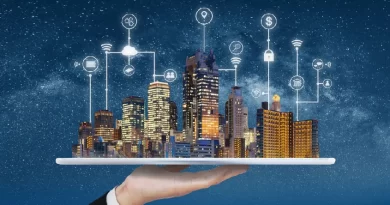The Growth of Real Estate Tokenization in the Metaverse
The real estate sector has long struggled with illiquidity and high entry hurdles. Tokenization as a whole has greatly aided in the democratization of this industry by expanding the market in the metaverse and lowering the entry barrier.
Tokenization of Real Estate in the Metaverse
Numerous corporations, startups, and investment firms have started to show intense interest in the decentralized virtual world as blockchain advancements and adoption across a wide range of sectors within the metaverse have started to skyrocket. Real estate is one such industry where colossal digital breakthroughs and metaverse development solutions are taking off.
The most liquid asset that necessitates drawn-out transaction procedures and considerable capital outlays is without a doubt real estate. It is essential to keep real estate deals private and secure if they are to continue taking place online. Additionally, it is now much simpler to buy and sell lots of land and buildings thanks to the digitization of real estate assets. And “real estate tokenization” is the phrase that has become well-known in reference to easing the management of virtual assets in the metaverse.
In the financial sector, tokenization is a rapidly growing area that permits safe and regulated investments in virtual tokens backed by both securities and physical assets. We’ll explain what real estate tokenization is in this blog post and how it’s changing the real estate market in the metaverse.
Real Estate Tokenization: What Is It?
In the process of real estate tokenization, real estate assets are divided into separate blocks that serve as evidence of ownership. As asset tokens that guarantee immutability, transparency, and top-notch security, these distinct blocks are regarded. Tokenization of property investment refers to the full process of dividing expensive real estate holdings into smaller tokens.
It also represents a modernization of partial real estate ownership. The worth of a real estate investment is divided up into smaller units via real estate tokenization, which helps to get around any of the prohibitively high entry barriers. Each portion of the real estate asset is turned into a token throughout this procedure. Each of these tokens contains securely encrypted data that is essential for transferring ownership to the buyer based on their respective ownership percentages in the property.
How Can Real Estate Be Tokenized in the Metaverse?
The following key steps are often followed by the metaverse’s real estate tokenization process:
Locating the asset: The corporation or company recognizes the commercial property asset during this process. This stage often involves purchasing, financing, and appraising the metaverse property.
Constructing smart contracts: The creation of reliable smart contracts is the next step. Before creating a smart contract, firms must adhere to all applicable rules and regulations.
Token generation: Here, firms must choose the kind and quantity of tokens to be created. Then, these NFT marketplaces or associated metaverse platforms list these tokens.
Distribution and marketing: Nowadays that tokens have been listed on the market, businesses must market and promote them. To list the tokens, one option is to do a security token offering or STO.
Support after launch: The last step involves providing safety and assistance to investors and buyers of real estate in the metaverse.
Real Estate Tokenization’s Advantages
Liquidity is one of the most important benefits that real estate tokenization offers. Commercial real estate and expensive homes frequently have trouble selling individually, which eventually adds to the asset’s high level of illiquidity. Property owners will be able to sell specific pieces of their assets in the shape of digital tokens thanks to real estate tokenization, though.
For individuals and small-scale investors looking to make strategic investments in high-value assets, real estate tokenization also provides new opportunities. This helps them diversify their holdings and end the monopoly of a few large and established real estate investors over the acquisition of highly valued real estate.
Real Estate Tokenization Types
It is crucial to remember that tokenization is possible for all types of real estate. Any reliable and secure real estate tokenization platform can be used to distribute these tokenized assets to a group of investors. Services for blockchain development as a whole are crucial to the process. There are various real estate tokenizations available, including:
Tokenization of Residential Real Estate
With the help of this virtual asset tokenization, investors can now acquire any desirable residential property or land parcel on the planet. This makes it easier for the owners to get their hands on the property’s dividends and capital gains.
Tokenizing Commercial Real Estate
The validated fractionalization method is used to tokenize the ownership of commercially zoned real estate without violating any regulations, laws, or standards.
Real Estate Tokenization for One Property
Tokenizing real estate allows companies and individuals to reduce their liquidity premium by over 20%. In the long run, this aids them in broadening their investment portfolio and obtaining money for new projects.
Real Estate Trophy Tokenization
This procedure is relevant in cases when you bought real estate purely for marketing purposes. Using an immutable ledger, trophy assets can be liquidated in a safe, controlled, and legal manner and used for fundraising as well.
To Sum Up
When it comes to investing, the real estate sector hasn’t always been able to keep up with the rapid pace of technological and digital advancements. Prior to the advent of new technology, there was a growing concern that real estate holdings may lose their value as financial investments.
However, the impossible job of making global real estate profitable and liquid has been accomplished thanks to the emergence of metaverse development services combined with blockchain-based tokenization. The real estate sector has long struggled with illiquidity and high entry hurdles. Tokenization as a whole has greatly aided in the democratization of this industry by expanding the market in the metaverse and lowering the entry barrier.




